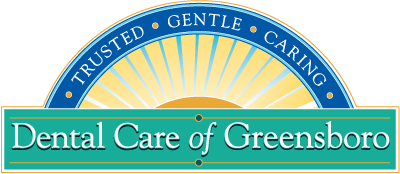Dry mouth, also known as xerostomia, develops when the salivary glands fail to produce sufficient saliva to keep your mouth moist, with potentially devastating effects on your oral health. Talk to your trusted team at Dental Care of Greensboro about the different dry mouth symptom management and treatment options.
What Causes Dry Mouth?
Dehydration can cause dry mouth, so the next time you have a sticky mouth, reach out for some water. It can also result from the use of certain medications, the natural aging process, nerve damage, chemotherapy, some health conditions, disorders affecting the salivary glands, smoking, caffeine and alcohol consumption, and recreational drug use.
What Are the Symptoms of Dry Mouth?
Symptoms of dry mouth include an uncomfortable, sticky sensation in the mouth, thick and stringy saliva, a dry or grooved tongue, a sore throat, and a hoarse voice. Patients also report difficulty chewing and swallowing, changes in taste and smell, trouble wearing dentures, and halitosis (bad breath).
How Can Dry Mouth Impact Your Health?
Saliva is necessary for your long-term oral health. It washes away food particles and debris and neutralizes acids produced by bacteria, which helps prevent tooth decay and gum disease. Patients with dry mouth are at risk of plaque accumulation, tooth decay, cavities, gum disease, fungal infection (thrush), bad breath (halitosis), and cracked lips.
Saliva helps with chewing, swallowing, and digestion and enhances the ability to taste different food flavors. A dry mouth often results in poor nutrition due to difficulty chewing and swallowing, leaving the body susceptible to a host of health problems.
Treating Dry Mouth and Managing the Symptoms
Treating dry mouth depends on the cause of the condition. Certain medications are behind about 90 percent of dry mouth cases, so talk to your healthcare provider about the possibility of switching drugs or adjusting their doses to alleviate your symptoms.
In many cases, simple changes can help alleviate your dry mouth symptoms. These include drinking plenty of water to stay hydrated, chewing sugarless gum, sucking on hard candy, using artificial saliva, or rinsing with mouthwash containing xylitol. Limiting caffeine and alcohol intake and refraining from the use of tobacco products will also help because these habits can cause dehydration, which in turn makes the dry mouth worse. If you mouth-breathe in your sleep, seek help because that can aggravate your dry mouth.
If your dry mouth persists, we may prescribe medications that stimulate saliva production. We may also recommend fluoride treatment and medicated rinses to strengthen your teeth and make them more resistant to decay.
Quality Dental Care in Greensboro
Contact Dental Care of Greensboro to learn more about managing dry mouth symptoms. If the condition persists, we will determine its underlying causes and create a treatment plan to alleviate your discomfort and restore your oral health. You can always count on us for outstanding care! Call us and schedule your appointment today!
